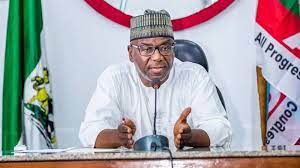The Lagos state Governor, BabatundeFashola, has lamented that while the state requires a minimum of 10, 0000 megawatts (MW) of electricity daily, it hardly get 700mw from the national grid.
Represented by the Permanent Secretary, state Ministry of Energy and Mineral Resources, Regina Obasa, he disclosed that in order to bridge the gap, the state was investing in the Independent Power Projects (IPPs) to take care of government offices and establishments thereby releasing more power to Lagos residents.
He stated this at the Community Enterprise Development Conference (CEEDC) in Lagos.
Decrying federal government policies as ineffective, especially in the area of electricity generation, he called for a legislation to allow each state to generate and transmit its own electricity for its citizenry.
He also expressed the state readiness to partner with investors in implementing a framework that to harness its renewable energy resources.
He said the frameworkwas expected to encourage and guide the development of renewable energy projects by all stakeholders in both the public and private sectors.
He said Lagos, being the commercial and economic capital of Nigeria implies that it requires a lot of energy to thrive.
“Lagos requires adequate access to energy for economic transformation of the State. It is one of the fastest ways to cut rural poverty, boost productivity and accelerate education and health outcomes, both in urban and rural areas,” he said.
He further called on investors to take advantage of abundant renewable resources like solar, biomass, wind, hydro and tidal waves with low greenhouse gas emission coefficients and primary energy factors to ensure availability, accessibility and affordability to modern energy for economic and commercial activities.
Lead facilitator at the Conference and Head of Bioeconomy, German Institute of Food Technology, Dr. Alexander Mathys, spoke extensively on the German experience in alternative energy and Food Security and Sustainability, saying it can be replicated in Nigeria.



